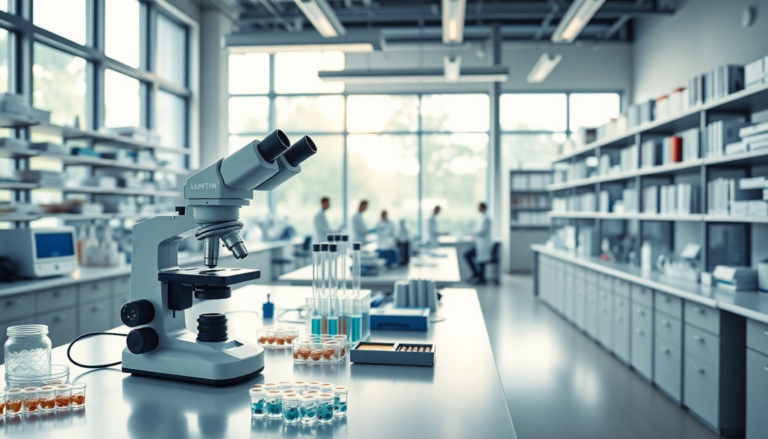Argomenti trattati
Imagine a world where diseases are not just treated but anticipated and prevented. This is not the distant future; it’s the reality unfolding in the field of biotechnology. For decades, biotechnology has intertwined with various scientific disciplines, often outpacing our understanding of its core principles. At its core, it harnesses living organisms and their derivatives for a plethora of applications, with medical biotechnology leading the charge. This branch of biotech is not just a scientific curiosity; it’s a transformative force in modern medicine, shaping everything from disease prevention to personalized therapy. The landscape is evolving rapidly, and as we delve deeper into this realm, we witness the integration of technologies like stem cells, nanotechnology, and robotics, all converging to enhance healthcare outcomes.
Understanding medical biotechnology’s core principles
Medical biotechnology applies the principles of biotechnology to create solutions for health-related issues. It’s a vast domain that has seen remarkable growth, especially in recent years. I remember when I first stumbled upon the concept of gene therapy—back then, it felt like something out of a science fiction novel. Now, it’s becoming a reality. The field has expanded to include techniques such as recombinant DNA technology, which allows for the creation of genetically modified organisms aimed at producing therapeutic proteins. This has led to significant breakthroughs, like the development of monoclonal antibodies used in various treatments, including cancer. Such innovations are not merely theoretical; they have tangible impacts on patient care, improving survival rates and quality of life.
Interdisciplinary innovations driving progress
The recent surge in interdisciplinary collaboration is fascinating. For instance, stem cell technology is revolutionizing regenerative medicine. Have you ever thought about the implications of using stem cells to repair damaged tissues? This line of research is not just about fixing injuries; it’s about redefining what recovery means. Moreover, the intersection of biotechnology with robotics and artificial intelligence is opening new frontiers. Imagine robotic systems that can administer therapies tailored to individual genetic profiles! This is not just a dream—it’s happening now, and it’s reshaping how we view medical treatments.
Milestones achieved in medical biotechnology
Looking back, the milestones achieved in medical biotechnology are nothing short of astounding. Remember the excitement surrounding the Human Genome Project? That landmark achievement was just the tip of the iceberg. Technologies like CRISPR-Cas9 have emerged, allowing for precise gene editing, bringing us closer to curing genetic disorders. And then, of course, we have mRNA vaccines—an innovation that caught the world off-guard during the COVID-19 pandemic. As recently reported by a study, these vaccines have not only provided a critical tool in combating the virus but have also set a precedent for using mRNA technology in treating other diseases. The potential is mind-boggling!
The future of healthcare with biotechnology
As we gaze into the future, the role of medical biotechnology in healthcare is poised to grow even more significant. Personalized medicine—tailoring treatments based on an individual’s genetic makeup, lifestyle, and environmental factors—will become the norm rather than the exception. This shift towards a more individualized approach promises not only to enhance treatment effectiveness but also to minimize side effects, leading to a holistic view of patient care. But here’s the kicker: how do we balance the excitement of these advancements with the ethical considerations they bring? As many know, the conversation around genetic editing and stem cell research raises complex ethical dilemmas that society must navigate. Personally, I believe that while the potential benefits are immense, we must tread carefully.
Conclusion: A reflection on biotechnology’s promise
In conclusion, the journey of medical biotechnology is a captivating narrative filled with promise and potential. Every innovation, every breakthrough, draws us closer to a future where diseases may be more manageable, or even preventable. But, as with any powerful tool, it comes with responsibilities. The real challenge lies not just in harnessing these technologies but in ensuring they are used ethically and equitably. As I reflect on the advancements we’ve made, I can’t help but feel a mix of awe and anticipation for what lies ahead in this exhilarating field.

